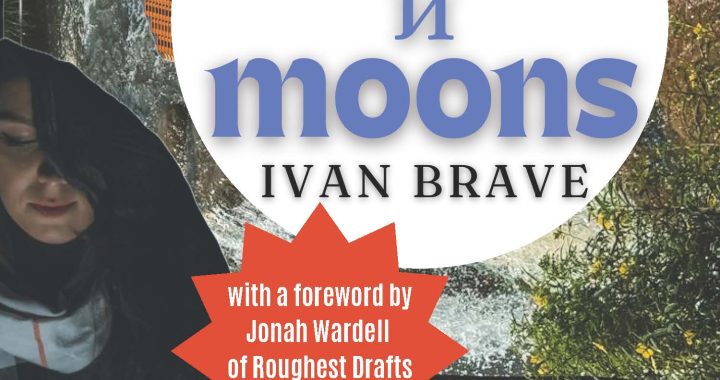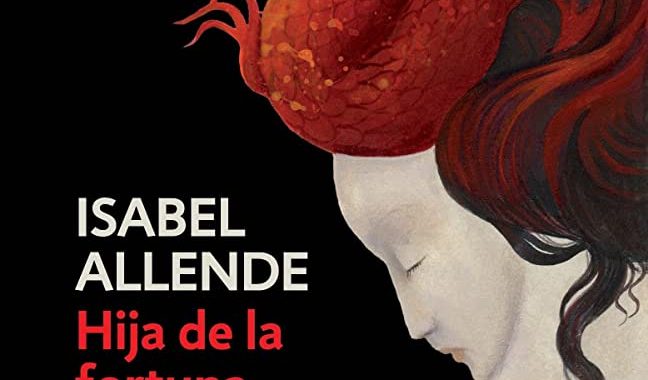A good book invites you to a world. A great book enters yours.
Both happened when I read the Alchemist.
Storytime. I was on my way to the airport, on my way to Europe to help the lady move her things to Bucharest. Per tradition, I made my round of phone calls to friends and family. It’s nice to talk on the phone, by the way. During the week one gets bogged down by those ten to twenty minute that become scrambles rather than calls, with forced “later, later,” at the end. Bah. Anyway.
Among the many calls, I spoke with a fellow hero, the writer, traveling salesman, teacher at times, man of the world, Juampi. A call to him before a flight is essential. Especially before a love trip. We spoke of proposals and of rings and of meeting loved ones around the world.
But we also spoke about books, as we tend to do.
“What do you mean you haven’t read the Alchemist?!?” It sounded like he were speaking the way I typed the punctuation, with extra question and exclamation marks. A passionate man, he is. “Buy it right now!!!”
I entered Newark from Terminal B. “Nah, man I’m trying to budget this trip.” I figured the book, being those timeless best sellers would not be cheap. Not expensive, but not cheap.
“I’ll buy it for you,” he said. A second later money enters my Venmo.
“Really? I mean . . .” I had been trying to read this book, actually, for years now, I even told Juampi. It’s one of those books that’s always been floating around in my parents’ home in Houston — imagine, that purple cover with the third-eyed lady, the triangle — and that’s because my mother would buy copies over the years. Yes copiessss.
Juampi was the kind of dude who when he loved a book he bought all his friends a book too, so this wasn’t unusual. A passionate man, and a generous man. And a most well-read pair of eyes. Did you know he read the Lord of the Rings one year during standardize testing in Texas? I digress.
After a shuffle about the airport, Juampi guided me as if he were a Navi over my shoulder, telling me to, not listen, listen, but to read! Read! (I only felt comfortable calling my friend a character in my video game story, because I hope and pray I am a character in his hero’s journey . . . or as the Alchemist calls it, “Personal Legend.”)
Of course there was a bookstore at the airport, terminal A, and quite a pretty one, might I add. The lady at the counter smiled real big to see me enter. She knew exactly where the book lay.
“I love it,” she said, drawing a 25th anniversary edition, orange, with a map of the straight of Gibraltar, birds and other cool designs. She was the nicest bookseller I had met in years. While her and I discussed the purchase, Juampi listened over the phone and opinionated. The three of us almost had a full on conversation. A testament to the power of telecommunications, the power of books.
Why am I saying all this, why am I rambling on about this STORY about buying the book? Because, and here enters the review, one of the major messages of the book is this: “When you want something, all the universe conspires in helping you to achieve it.” I have always wanted to read this book. When finally the chance came, it happened effortlessly.
Ramble done. Review time.
“It’s the kind of book you should read before a trip,” Juan had told me. And that’s how I want to open this book discussion. (Before that, hater moment: please skim this Reddit, to remember that any popular title will always have vocal distaste. Or take this NYT article, for an extra serving of sour cream.)
Nevertheless, in my opinion, it energizes you. It empowers you. And, like I mentioned earlier, the bit about good books and great books, they enter your life. If that isn’t reason enough to get a copy, then maybe learning about it more will. Allow me.
The story follows a certain Andalusian shepherd named Santiago. After a recurring dream about a treasure leads him to find answers from a Romani fortune-teller, Santiago embarks on a years long journey to the Pyramids of Giza. On his way, he encounters a mysterious king, a Moroccan businessmen, and an English scientist, as well as the titular Alchemist — all people who guide the story’s hero, as he learns about himself and the world, always in search of the pyramid’s hidden treasure. Whether Santiago finds what he is looking for or not will depend, after years of setbacks and side-quests, on the growing strength of his soul.
Learning of the protagonist’s name and birthplace, the reader recalls the Road to Santiago de Compostela in Spain. Immediately we know this book will principally be a hero’s journey to self-discovery, wrapped inside a treasure hunt. We find out Santiago wasn’t always meant to be a shepherd, not that it was forced upon him, quite the opposite. Actually he was supposed to be a monk. He almost did become one, having been well educated, until he decided to live his life traveling and ambling.
After ambling and vagabonding for years, life starts to take on a monochromatic hue. That’s when he decides to visit an old woman gypsy. Why, to solve the riddle of a dream. (Also, Santiago is madly and distantly in love with a girl from another village, but, again, I digress.) The old woman gypsy goes loca when she hears about his dream and says, yo, like, I’m not going to charge you for deciphering this dream, but you have to promise to give me ten percent of it.
The reader’s ears perk up at this moment, the adventure begins, yet only a considerable number of pages into the reading.
A pause here to say something that’s been on my mind! One comment I keep (present tense) hearing about my novel is about how it starts off slow. Anyone who has taken a writing workshop will know the cliche about “your story should start here, on page three.” Juampi has a good line making fun of this cliche: “Your story should really start here, on the last page, maybe a little after.”
Anyway, my novel, it starts off slow some say. Others say it reads fast and furious. A lot of the book is fast and furious, but the opening pages, even its humble author will admit, does begin at ease, with a few snoozes to the alarm and a lot of chill pot smoking. Very lazy.
Why, because I wanted my own opening pages to linger, I wanted the reader to feel comfortable, to kick off her shoes, to “stay a while” as my roommates say, as she discovered the characters. If only readers read to page 8, when a shroom trip takes the book to overdrive, but it’s in those first 8 pages that the vast majority of new-readers will “decide” if a book is worth reading (purchasing or not). One of our dominating hypothesis as to why our Amazon campaigns aren’t doing so hot, despite high number of “clicks” to our book page, is exactly this. Readers like the cover, they do a “preview now” and then they stop reading after a page or two. The wrytah in me (yes, please say it with a British accent) puckers his lips and says, “Ok, next book will have a sex scene on page two.”
But! But! Then I remember Elena Ferrante’s My Brilliant Friend, with its crawling beginning. I think of the book under review, The Alchemist, with its more than a few pages of ambling through the Spanish countryside before a treasure hunt begins. Damn, the Odyssey comes to mind, with the first four books not even having the hero, Odysseus, show up at all!
Folks, I know you aren’t even the people to preach to about this, remembering that some of the greatest works of literature begin slow. Try making best friends with a stranger and imagine. Books are the same. Even if someone strikes you at first glace it’ll still take a while for you two to go from acquaintances to besties. Don’t even ignore the fact that I’m including my book among these masterpieces. Isn’t it natural, I have bookshelves in my room, and those books on those shelves influenced me, and go figure, I want my book to slide between these works, like a charmer at a party. A-n-y-w-a-y.
The world is conspiring.
I’ll end with two things, a repetition, and a mini-story.
The repetition: this book integrated itself into my life as I read it; it gave some solid advice that I took with me as I met Ela, her mother, her brother, her cousins, and her friends. I might not know their language just yet, but, borrowing from the “There is a universal language” concept in the Alchemist (wouldn’t that tingle your boy, moi?), and combining it with the concept of “Your eyes show the strength of your soul,” another brilliant quote from the book: I was able to meet these future in-laws and step towards joining souls, I mean, life paths with other individuals. Isn’t that what meeting people is? Isn’t that what forming bonds is? Different highways of lovers and worriers crossing paths, inviting one another for tea, making love, complaining, but basically sharing the road in so far as they and we make our dreams come true?
The mini-story: after landing in Rome, I end up taking a regional train into Naples, but I believe I am on an express, to meet Ela, after 100 days of being apart. I don’t have a European number, and my data roaming is off. Ela thinks I’m arriving at 5:30, but when 5:30 rolls along, I realize all this, and start to worry. I’m distracted from my reading of the Alchemist, which is in my hand, as I look out the window at god knows what Italian landscape.
A man bumps into me, an old man with silver hair. You know how you aren’t supposed to bother people who are reading, or people who are nervously looking out the window? Well this man insists on having a conversation.
“Alquimia!” he shouts, with familiar enthusiasm.
“Si,” I tell him.
He tells me a story about his friend in Peru, studying how to turn lead into gold, as if people are still out there in the world, or Amazonian jungle, making the impossible possible.
My anxiety rises. I think about poor Ela who must be searching for me, going from platform to platform circa-pre-internet age, missing me.
I ask the man who interrupted me, if it would be possible to use his phone. I’m thinking, before I ask, that if he is going to interrupt my reading, he might as well break my anxiety too, lend me a phone.
“Con placer!” he says. We were talking in an Italian version of Spanish btw.
Reminiscent of a wise king that Santiago meets, I am lent a phone to tell the one waiting for me something simple like “I’ll be an hour late.” I hear her voice reassure me, “It’s no problem, please, I’m here.” A normal boring anxious moment turns into a spiritual, peaceful moment with a stranger, who is now stepping off the train.
“Gracias,” I tell him, “por prestarme el telefono.”
He smiles real wide, as a wise king would, his silver hair doing its silver head thing.
He says, with a wink, before telling me if it weren’t for the book in my hand my loved one might have gone home: “Alquimia . . . alquimia.” And he disappears.





I just wanted to respond to your comment that most readers make the decision about reading a book within 3 pages. Personally, it is not the story that pulls me into a book, but the writing and the pleasure of reading. The cover may keep me from reading if it looks trite or pretentious, but if I get as far as reading, and if I find a great quality of writing (my personal idea of whatever that is), it is like discovering gold. A better comparison might be that it is like tasting something delicious. You know it immediately.
Dear Kathy, Thank you for your honest opinion. I think a lot of readers would empathize with your approach. One thing that stands out to me is the “personal idea of whatever.” Would you mind expanding? I’m curious for many reasons, but for one, I would like to know what it is that sparks interest. Is it a phrase, a rhythm, a symbol, or maybe there’s something that reminds you of something else you read? As for Alchemist, what kept me going wasn’t necessarily the style of writing, but the fact that a friend had recommended it. He was mysterious in his praise, I must admit, so when the book began as mysterious, I admit, it lured me in. It felt exciting, like a secret was about to be revealed. And, of course, there was plenty of that.
Hi Ivan, I have to commend you for telling a story or stories within the book review that only you process the natural ability to do. The story made reading the review that much more intense. While I agree with the various styles of writing I have realized that on this generation everything is consumed at a much faster pace. I tend to take the approach to put something profound or the most important message of the story at the beginning. So even if the reader doesn’t buy my book or read the rest of it, they got the message. The message that if they are truly the reader for this story it will stick with them and eventually persuade them to finish reading. I’ve always said a story finds the reader. While there are marketing ploys to attract a readers attention (book covers, alliterations in titles, gut wrenching abstract, pen names, etc.) it is the emotional connection found within the story that lasts a lifetime. Just like this book did with you and pulled you in. That is every writers goal. So keep on writing just like this author did. Btw did you know when this book first came out it didn’t sell? Not until it was translated to the French-language. Making it even more reaffirming for writers out there that time and stories must align. Stories need a space to grow and a reader to find. Maybe in time it will become an event/ the go to story that changed millions of lives for the better because of the overall message. Good talk… until next post friend.
Dear Astrid, Thank you for taking the time to leave your note. It has been on my mind for the last couple of days, only now am I able to respond in kind. You are absolutely right to put important messages at the front of a story. That may be business mind’s “cut to the chase” approach that anyone could learn from, eh? (My “I hope” sentence in emails for example, I write it first, but inevitably move it to the end, after I’ve asked what’s needed to be asked.) At the end of the day, and by day I mean at the end of a long read, what sticks with me is what you say, the story, or maybe even the story as a whole. Certainly I can remember bits and pieces of the Alchemist, certainly I can recall the cover. But what matters to me, and I bet to millions of others, is the overall message — follow your dreams — that feeling we got as we turned page after page, waiting for Santiago to reach his destiny. I am breathing, now. Writing this post pointed me to what matters; reading your reply helped me get there. Thank you. Ah. Time to put more pen to paper, and watch for the planets to align.
Pingback: A list of books that inspired my stories or feature similar themes - iván BRAVE